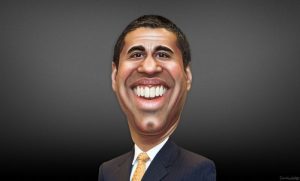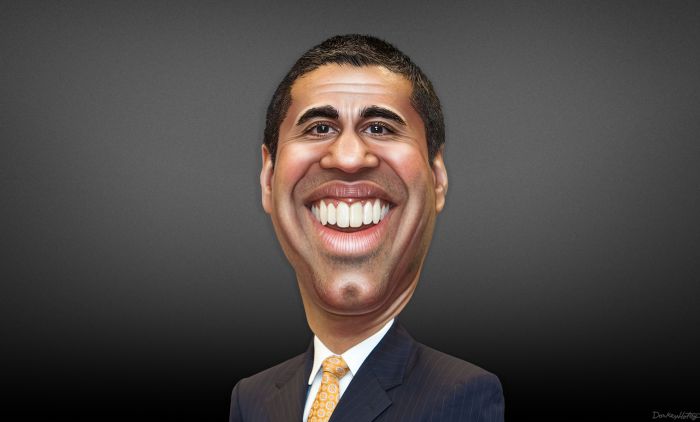The stories that most interested us this week.

- The New York Times reports on the ongoing turmoil at the Consumer Financial Protection Bureau and impending court battle over who will lead it after both President Trump and the outgoing CFPB head, Richard Cordray (who resigned on Friday), named successors to run the agency. Business Insider’s Allan Smith provides more background on the legal battle around a short sentence in the Dodd-Frank Act that details who has the authority to select the CFPB’s acting director.
- The Meredith Corporation is purchasing Time Inc. in a deal valued at $2.8 billion, backed by the Koch brothers.
- Rep. John Conyers (D-Mich) steps down as the ranking Democratic member of the House Judiciary Committee.
- Among this week’s biggest news stories is the Department of Justice’s lawsuit over the AT&T-Time Warner merger. In The Washington Post, Matt Stoller of the Open Market Institute explains why the Trump administration is right to block the deal. The New Yorker’s John Cassidy lays out the economic case against the deal. The case, writes Bloomberg’s Tom Schoenberg, will be overseen by US District Court judge Richard Leon, who signed off on a similar deal: Comcast’s purchase of NBCUniversal. Over at BuzzFeed, Matthew Zeitlin wonders: if AT&T is an antitrust target of the Justice Department, can Facebook and Google be next?
Also, don’t miss Chris Sagers’s analysis of the lawsuit’s strength and its impact on antitrust policy on ProMarket.
- Bloomberg columnist Joe Nocera argues that “current antitrust theory is out of date” and that new legal ideas are needed to fight megamergers.
- The other big economic news this week is the FCC’s newly released plan to repeal the net neutrality rules put in place by the Obama administration, clearing the way for Internet and cable providers to charge users more for access to different content or websites. The FCC plan is widely seen as a victory for telecom companies, who spent more than a half-billion dollars lobbying the federal government in the past decade. The FCC received a record-breaking 22 million comments regarding net neutrality, The Verge reports, but ignores the vast majority of them. In The New York Times, Columbia professor Tim Wu—who coined the phrase “net neutrality”—explains why it’s up to the courts to save net neutrality. Evan Grier argues that repealing net neutrality “will destroy everything that makes the internet great,” while Bloomberg’s Shira Ovide contends that “net neutrality is fiction, no matter what FCC does.” In the Wall Street Journal, FCC chairman Ajit Pai explained the decision, arguing that current net neutrality rules “regulate the web like a 1930s utility” and must be done away with.
- Uber, which admitted to paying off hackers in order to keep secret a massive breach that exposed the personal data of 57 million of its users, is facing a regulatory crackdown according to Reuters.
- A Maplight investigation finds that The Wellspring Committee, a dark money organization that funds conservative causes, was the source of the $17 million spent to keep Supreme Court Justice Antonin Scalia’s seat in Republican hands.
- From The Economist: What annual reports say, or do not, about competition.
- New York Times reporter Anahad O’Connor on newly released historical documents that show how, in the 1960s, the sugar industry funded research that looked into the effects of sugar consumption on cardiovascular health—and then “buried the data when it suggested that sugar could be harmful.”
Also have a look at Guy Rolnik’s account on ProMarket of how a family of sugar barons secured billions of dollars in subsidies by lobbying both parties in the US government.
- An investigation by Reveal from The Center for Investigative Reporting: the EPA swapped top science advisers with experts tied to industries regulated by the agency.
Stigler Center Goings-on
- A Forbes article on workplace culture cites research by Stigler Center Faculty Director Luigi Zingales, Luigi Guiso, and Paola Sapienza.
- Have you signed up for next week’s Stigler Center talk by Tyler Cowen? If not, do it here.
Disclaimer: The ProMarket blog is dedicated to discussing how competition tends to be subverted by special interests. The posts represent the opinions of their writers, not those of the University of Chicago, the Booth School of Business, or its faculty. For more information, please visit ProMarket Blog Policy.






